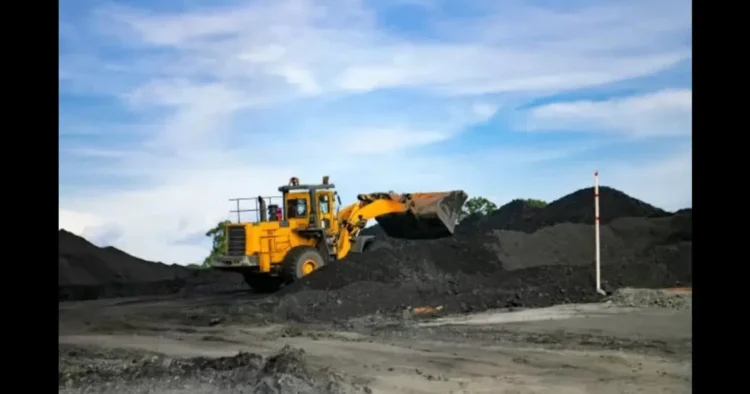The Ministry of Coal has announced a detailed plan to quickly develop critical logistics infrastructure in India. This plan is a key part of achieving the ambitious targets of “Vision 2030” and the broader goal of “Viksit Bharat 2047,” which Prime Minister Narendra Modi has envisioned.
Integrated Planning and Synchronized Implementation
The strategy aligns with the Prime Minister’s call for “integrated planning and synchronized time-bound implementation.” This approach is vital to ensure that India’s infrastructure keeps pace with the increasing demands of coal production and transportation. Coal continues to be a fundamental part of India’s energy sector, and the Ministry is determined to remove logistical barriers that have traditionally slowed down the efficient transportation of coal.
According to a press release by the Ministry of Coal, the ministry is working closely with the Ministry of Railways, state governments, and various other agencies.
The goal of this collaboration is to streamline processes and speed up the development of infrastructure needed to evacuate coal. This cooperative effort is expected to create a better environment for infrastructure development, helping the Ministry achieve its objectives.
Goals of the Infrastructure Strategy
The Ministry’s strategy includes several key goals:
- Ensuring Adequate Infrastructure: The Ministry aims to develop enough infrastructure to handle the increasing coal production and transportation demands. This includes reducing total logistics costs, optimizing the coal loading and transportation network, and promoting the use of advanced technologies like AI, drones, and sensors to upgrade existing infrastructure.
- Developing a Multimodal Network: The Ministry is working on creating an interconnected multimodal network that promotes greener transportation. The focus is on improving logistics and transportation systems to ensure that coal moves quickly and cost-effectively from production sites to consumers.
Stakeholder Engagement: The Ministry emphasizes the importance of addressing the needs of all stakeholders during the planning and implementation of infrastructure projects.
Increasing Rail Transport Share
- To support the goal of producing 1.5 billion tonnes of coal by the fiscal year 2030, the Ministry plans to increase the share of coal transported by rail from 64% to 75% by FY 2030. This shift will help reduce road congestion and enhance environmental sustainability. To achieve this, 38 priority rail projects have been identified for fast-tracking, in close coordination with the Ministry of Railways. These projects are crucial for improving rail connectivity and ensuring that coal is delivered on time to power plants and industries across the country.
Mechanized Coal Handling
The Ministry has also set a mandate for all large coal mines that produce more than 2 million tons (MT) per year to implement mechanized coal handling facilities within the next five years. This initiative aims to boost operational efficiency, create safer working conditions, and reduce the environmental impact of coal transportation.
Through the PM Gati Shakti initiative, the Ministry is promoting multi-modal connectivity to ensure coordinated efforts across various ministries for seamless coal evacuation. This initiative is expected to foster better connectivity and make the movement of coal smoother and more efficient.
Commitment to Environmental Sustainability
The Ministry is committed to minimizing the environmental impact of coal evacuation. By adopting cleaner technologies and practices, the Ministry’s plan aligns with India’s climate goals, ensuring that the growth in coal production and transportation is balanced with the need to protect the environment.
This comprehensive strategy by the Ministry of Coal reflects a strong commitment to modernizing India’s coal infrastructure and achieving the nation’s energy and environmental goals in the coming years.

















Comments